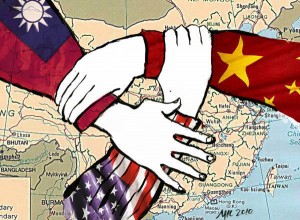The “Taiwan Travel Act” Is a Psy-Op Against China with Economic Dimensions

The US recently passed the so-called “Taiwan Travel Act”.
This piece of legislation decrees that the American government should encourage bilateral visits between its officials and their Taiwanese counterparts, essentially formalizing a policy that has been unofficial for decades since the US switched its recognition of China’s legal government from Taipei to Beijing as part of Washington’s late-Cold War efforts to turn the People’s Republic against the Soviet Union. The move comes amid an escalating Hybrid War between the US and China, whereby America is practicing a multifaceted policy of “containment” against its chief Great Power rival via its actions in the Korean Peninsula, the South China Sea, Vietnam, and India, all of which are occurring against the backdrop of an incipient trade war between the two.
The “Taiwan Travel Act” doesn’t functionally change anything in this framework, thus making it more akin to an instrument of psychological pressure on the Chinese leadership than a Hybrid War weapon in its own right. It does, however, position the breakaway island to play a crucial role in any forthcoming US-Chinese trade war due to its increasingly privileged status in the eyes of American strategists. In the event that Washington and Beijing implement tit-for-tat “reciprocal” “sanctions” against one another, Taiwan’s free trade relationship with the People’s Republic via the 2010 Economic Cooperation Framework Agreement (ECFA) could present a backdoor to the American marketplace if Congress pushes through a corresponding bilateral free trade agreement with the island as well.
Interestingly, Taiwan could therefore end up coming out on top in any trade war between the two giants since it could serve as a geo-economic conduit for keeping economic relations between them stable at any given time. Furthermore, the increasingly close political relationship between Taiwan and the US that would naturally accompany the successful implementation of the “Taiwan Travel Act” – as well as the forecasted economic one per the explained scenario – could easily lead to Washington deciding to arm Taipei even more than it already is following the provocative decision to sell arms to Moscow’s adversaries in Kiev. The rise of CIA chief and well-known neoconservative war hawk Mike Pompeo as the US’ top diplomat also suggests that Taiwan will figure more prominently in American grand strategy than ever before.
*
Andrew Korybko is an American Moscow-based political analyst specializing in the relationship between the US strategy in Afro-Eurasia, China’s One Belt One Road global vision of New Silk Road connectivity, and Hybrid Warfare. He is a frequent contributor to Global Research.
Featured image is from US-China Perception Monitor.

